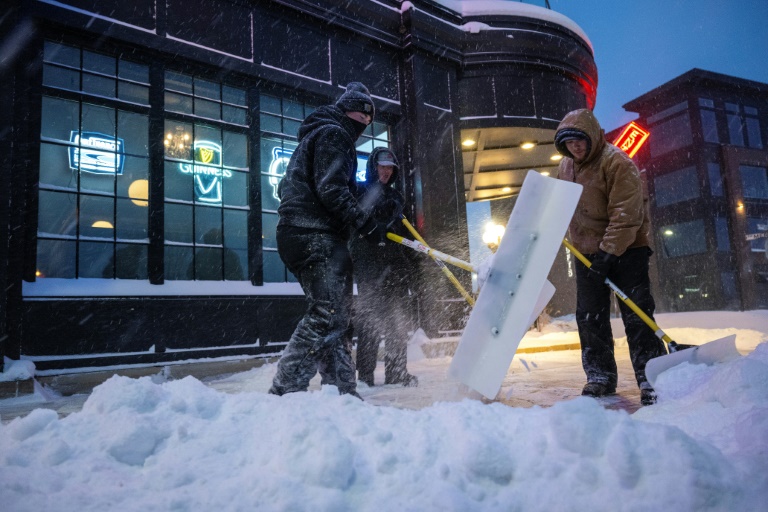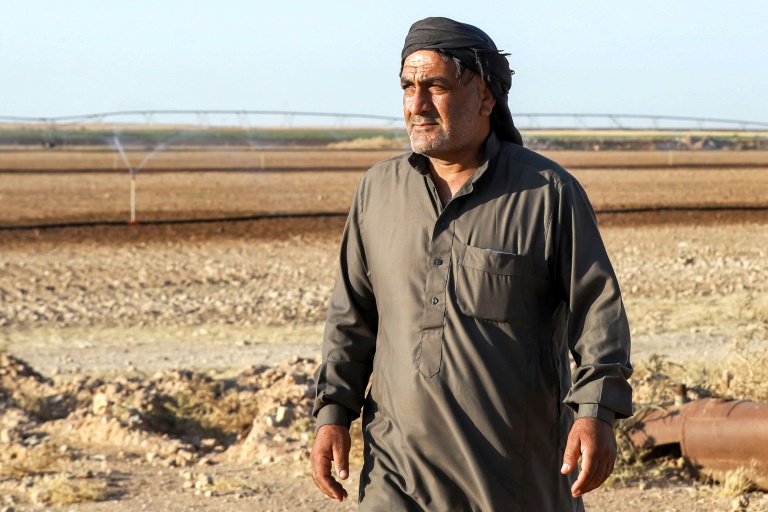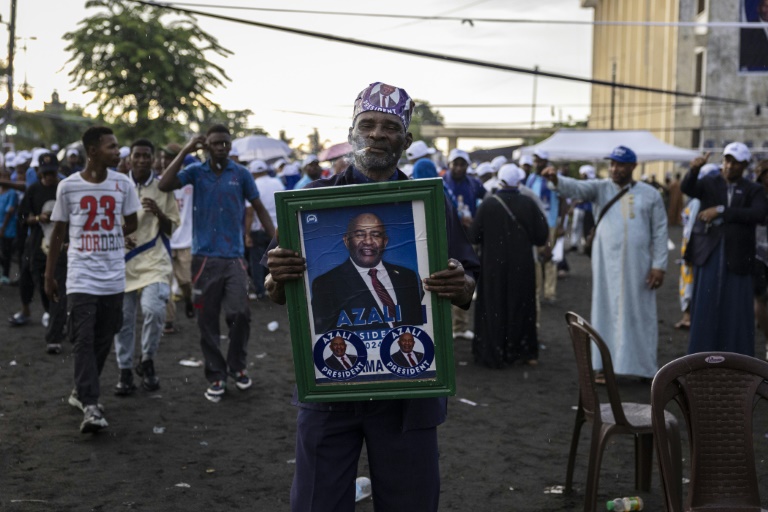Voters venture into sub-zero temperatures Monday to kick off the Republican presidential nomination race with the Iowa caucuses, the first major test of whether runaway front-runner Donald Trump is as much of a sure thing as he appears.
With a commanding lead in polls, the ex-president is expected easily to win the Midwestern state’s first-in-the-nation vote as he bids to be the Republican standard-bearer against President Joe Biden in November.
But Iowans may have to contend with the coldest conditions in the modern era of presidential election campaigns, with blizzards and a potential wind chill of -26 degrees Fahrenheit (-32 degrees Celsius) forecast.
Trump and his leading rivals, Nikki Haley and Ron DeSantis, were forced to cancel appearances in the home stretch as the threat to Monday’s turnout added intrigue to a campaign season that is already something of an unknown quantity.
Despite his apparent strength, Trump has been indicted four times since he was last a candidate, and is preparing for the potential collapse of his business empire in his native New York in a civil fraud trial.
“If DeSantis’s massive ground effort, coupled with a recent Haley surge, can drag Trump under 50 percent by several points, that will be the first meaningful sign that Trump can be defeated,” said political analyst Alex Avetoom, who worked on Republican John McCain’s 2008 presidential campaign.
“However, this paradigm-shifting reality — that Trump could be defeated — happens if, and only if, the rest of the field consolidates behind one anti-Trump candidate.”
For all the talk of miracle bounces, the Iowa race is hardly competitive: A new Suffolk University poll has Trump at 54 percent among likely caucus-goers, with Haley surging into second place but still only at 20 percent.
“I’m voting for Trump again,” 37-year-old trucker Jeff Nikolas told AFP, adding that “he may be bullheaded, but he can actually get stuff done.”
The Suffolk University survey was more bad news for Florida governor DeSantis, who scored just 13 percent and has seen his claim to be heir apparent to the post-Trump Republican Party eclipsed by Haley.
The former South Carolina governor is looking to outperform expectations to cement her claim to be Trump’s top challenger going into her preferred state of New Hampshire the following week.
Iowa is a notoriously poor predictor of the eventual nominee, but it is considered crucial for winnowing the field and as a springboard to the next few battlegrounds, which include Haley’s home state.
Stung by defeat in 2016 after skipping much of Iowa’s campaign trail, Trump has built up an impressive network of “precinct captains” to corral votes this time around — but he has been as notable for courtroom appearances as campaign events.
In a state that likes to meet its candidates face-to-face, DeSantis has been at pains to highlight his own ground game, which has taken him to all 99 counties.
The Iraq veteran and conservative hard-liner will be under heavy pressure to drop out however if he finishes third — although Avetoom cautioned against counting him out.
“Poll respondents are not necessarily Iowa caucus-goers, and the DeSantis precinct operations… are run by first-in-class operatives that have collected an impressive tally of caucus support pledges,” he said.
Edward Segal, a former press secretary for Democratic and Republican lawmakers, echoed the benefits on a strong ground game, pointing to at least nine presidents who toured Iowa by train during campaigns.
“Whistle-stop campaign trains can still serve as eye candy to help attract the attention of voters and the media,” the analyst told AFP.
A good night for Trump on Monday, he added, would be “getting 60 percent or more of the vote.”
Iowa’s Democrats will also attend caucuses — meetings at which local members of a political party gather to register their candidate preferences — on January 15 but will vote by mail from January until March.
Biden is expected to comfortably defeat self-help author Marianne Williamson and Minnesota congressman Dean Phillips.
AFP
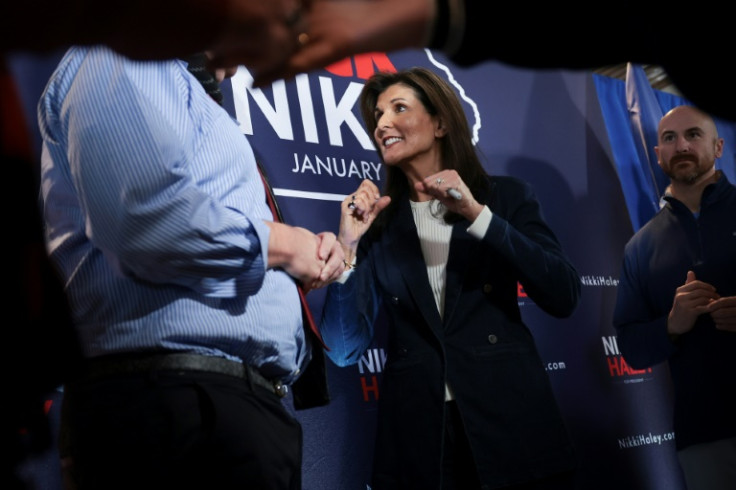
AFP
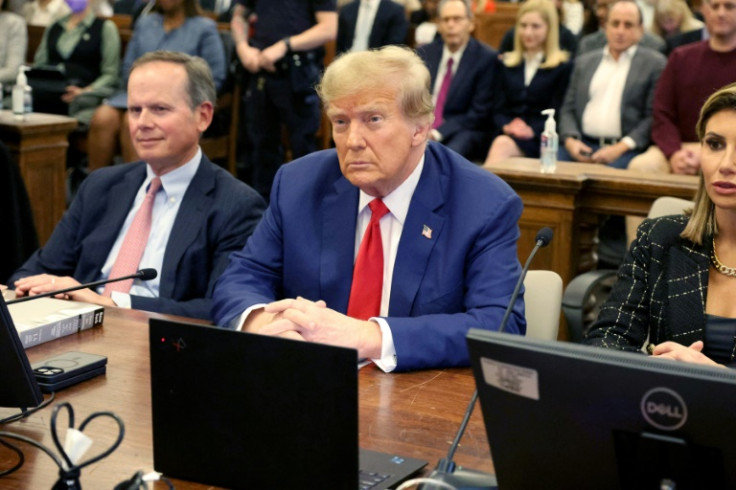
AFP
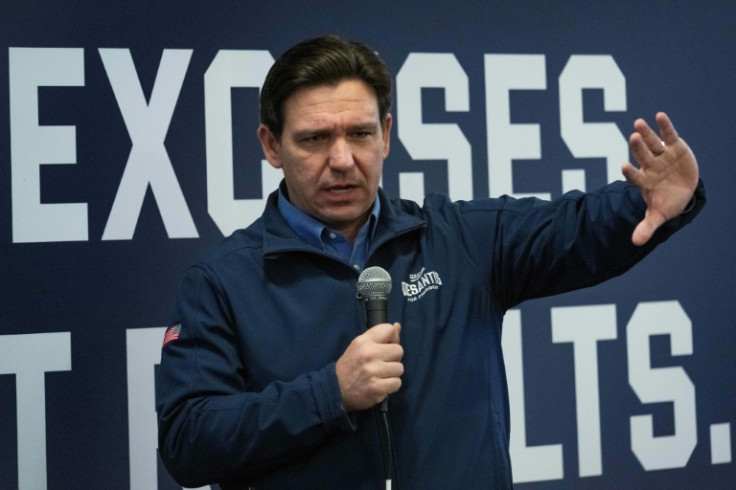
AFP

